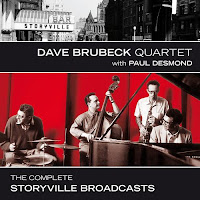...The Modern Jazz Series continued into the 1970s with the LPs listed
below. Many were issued in both monaural versions (BLP series) and
stereo versions (BST 84000 series). Most of the 4000 series have been
reissued by Toshiba-EMI in Japan ("Blue Note Works 4000" series); the
catalog numbers are TOCJ-4###
BN.4176- Dexter Gordon- 1964- One Flight Up {RVG Remaster}
BN.4177- Grachan Moncur III- 1964- Some Other Stuff {RVG Remaster}
BN.4178- Blue Mitchell- 1964- The Thing To Do {RVG Remaster}
BN.4179- Jackie McLean- 1964- It's Time
BN.4180- Anthony Williams- 1964- Life Time {RVG Remaster}
BN.4181- Kenny Dorham- 1964- Trompete Toccata {RVG Remaster}
BN.4182- Wayne Shorter- 1964- JUJU {RVG Remaster}
BN.4183- Grant Green- 1964- Talkin' About
BN.4184- Sam Rivers- 1964- Fuchsia Swing Song {RVG Remaster}
BN.4185- Horace Silver- 1964- Song For My Father {RVG Remaster}
BN.4177- Grachan Moncur III- 1964- Some Other Stuff {RVG Remaster}
BN.4178- Blue Mitchell- 1964- The Thing To Do {RVG Remaster}
BN.4179- Jackie McLean- 1964- It's Time
BN.4180- Anthony Williams- 1964- Life Time {RVG Remaster}
BN.4181- Kenny Dorham- 1964- Trompete Toccata {RVG Remaster}
BN.4182- Wayne Shorter- 1964- JUJU {RVG Remaster}
BN.4183- Grant Green- 1964- Talkin' About
BN.4184- Sam Rivers- 1964- Fuchsia Swing Song {RVG Remaster}
BN.4185- Horace Silver- 1964- Song For My Father {RVG Remaster}










 One of a handful of musicians who can be said to have permanently changed jazz, Charlie Parker was arguably the greatest saxophonist of all time. He could play remarkably fast lines that, if slowed down to half speed, would reveal that every note made sense. "Bird," along with his contemporaries Dizzy Gillespie and Bud Powell, is considered a founder of bebop; in reality he was an intuitive player who simply was expressing himself. Rather than basing his improvisations closely on the melody as was done in swing, he was a master of chordal improvising, creating new melodies that were based on the structure of a song. In fact, Bird wrote several future standards (such as "Anthropology," "Ornithology," "Scrapple from the Apple," and "Ko Ko," along with such blues numbers as "Now's the Time" and "Parker's Mood") that "borrowed" and modernized the chord structures of older tunes. Parker's remarkable technique, fairly original sound, and ability to come up with harmonically advanced phrases that could be both logical and whimsical were highly influential. By 1950, it was impossible to play "modern jazz" with credibility without closely studying Charlie Parker.
One of a handful of musicians who can be said to have permanently changed jazz, Charlie Parker was arguably the greatest saxophonist of all time. He could play remarkably fast lines that, if slowed down to half speed, would reveal that every note made sense. "Bird," along with his contemporaries Dizzy Gillespie and Bud Powell, is considered a founder of bebop; in reality he was an intuitive player who simply was expressing himself. Rather than basing his improvisations closely on the melody as was done in swing, he was a master of chordal improvising, creating new melodies that were based on the structure of a song. In fact, Bird wrote several future standards (such as "Anthropology," "Ornithology," "Scrapple from the Apple," and "Ko Ko," along with such blues numbers as "Now's the Time" and "Parker's Mood") that "borrowed" and modernized the chord structures of older tunes. Parker's remarkable technique, fairly original sound, and ability to come up with harmonically advanced phrases that could be both logical and whimsical were highly influential. By 1950, it was impossible to play "modern jazz" with credibility without closely studying Charlie Parker.